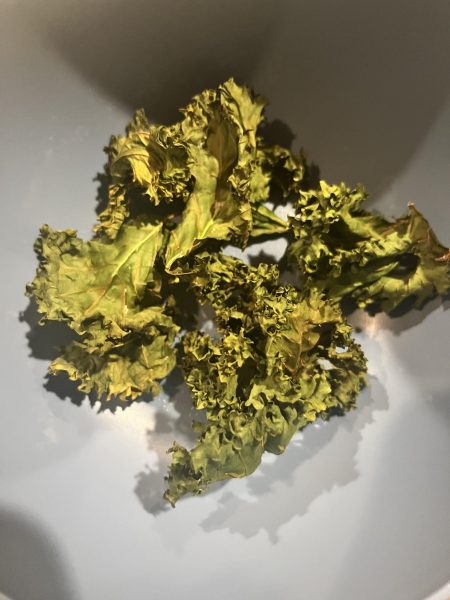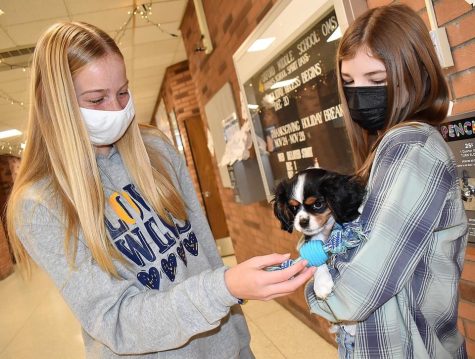BEWARE: binge drinking
“Stress caused by my family and friends makes me want to drink. When my friends don’t accept me, alcohol does. It’s not uncommon. Why do you think anyone drinks? They’re either masking a bigger problem or being peer pressured into submission. Spring break and other high school parties are just a good cover up for what’s really going on,” senior Kelly Smith* said.
Fueled by toxic levels—spring break, graduation parties and late summer nights evoke a sense of invincibility among the teenage population.
These lively events can quickly turn dangerous, or even deadly, as some 21 percent of teens consume excessive amounts of alcohol, according to the Centers for Disease Control and Prevention.
“There are quite a few dangers with underage and binge drinking. There can be issues in school with high absence rates and poor grades; social issues, like fighting and decreased participation in school activities; legal problems, if arrested by police while intoxicated or in possession of alcohol; physical effects, due to hangovers and other illnesses; higher rates of risky behavior, due to lack of inhibition; slowing of growth rate and body development; unintended injuries and accidents; memory problems; change in brain chemistry; abuse of other drugs; and even death” said Dr. Robert Popovski of Roseville Family Practice.
Binge drinking is defined as a pattern of drinking that brings blood alcohol concentration (BAC) levels to 0.08 percent. This equates to about five drinks in two hours for men and four for women, according to the National Institute of Alcohol Abuse and Alcoholism (NIAAA).
During the spring break season, the average male teen reportedly consumes 18 drinks per day, while the average female teen consumes 10. More than half the men and 40 percent of women drank until they became sick or passed out, according to the Journal of American College Health.
Binge drinking and brain development
The brain does not fully develop until a person is in their early 20s and the last region of the brain to develop is the frontal lobe, where decision making and judgement happens. Alcohol attacks the frontal lobe. Any chemical that alters neuron interaction while the brain is forming and pruning, a process in which extra neurons and synaptic connections are eliminated in order to increase the efficiency of the brain, will destroy brain capability, according to AP psychology teacher Lisa Hallam.
“Since teens’ frontal lobes are not developed and they already can’t make good decisions, [when] you put people who don’t have a developed brain in an environment that encourages and supports bad decisions, then yes, that’s a disaster,” Hallam said.
Not only can alcohol alter brain chemistry, it can start to affect how a person behaves, which can lead to risky behavior and a lack of motivation. This can cause a delay in normal development, both physically and mentally, according to Popovski.
“I think spring break does encourage underage drinking in many instances, for a variety of reasons. There is a sense of freedom and a pursuit to have a good time that can let a student’s guard down and can lead to binge drinking,” Popovski said. “Obviously, the message needs to get out that this is not an acceptable way to have a good time for teenagers.”
Peer pressure causes teens to act in ways they may not otherwise act in certain group-influenced situations, according to the American Psychological Association.
“My friends peer pressure me into drinking all the time,” Smith said. “[People binge drink during spring break] because everyone else is drinking and it’s legal in Mexico. I think that’s why people choose to go there.”
Alcohol poisoning
Alcohol poisoning during a binge drinking session is common and severely dangerous. On average, six people, mostly adult men, die from alcohol poisoning each day, according to the CDC.
Alcohol poisoning and alcohol-related car crashes, homicides, suicides and other injuries cause 4,358 deaths in people under the age of 21 each year, as reported by the CDC.
Someone who drinks a large amount of alcohol in one sitting could stop breathing. Although many people survive from alcohol poisoning, brain damage is a common side effect of such intoxication, according to the NIH. It is also possible for a person sleeping to be in serious danger, as BAC levels continue to rise.
If a person suffers from alcohol poisoning or witnesses a poisoning, 911 should be contacted immediately, according to the NIAAA. If in another country, the poison help line can be contacted at 1-800-222-1222, according to the American Association of Poison Control Centers. In the meantime, a witness to a poisoning should turn the victim on their left side and place a pillow at the small of the back to prevent choking, should that individual vomit, according to Harvard Health Publications.
Consequences of binge drinking
Crisis situations caused by intoxication such as assault, rape and injury, increase during alcohol induced activities, according to the NIAAA.
“Alcohol may make a person more relaxed [while] decreasing inhibitions. In this case, students may make poor choices that could lead to intentional or unintentional injuries,” medical health and biology teacher Suzy Hahn said.
While traveling, students should be conscientious of “vacation brain.” A nice area should not warrant a false sense of security and a student should not let their guard down around strangers until a trustworthy relationship is formed, according to Rape Abuse and Incest National Network.
One in five respondents said they regretted the sexual activity they engaged in during spring break and 12 percent said they felt forced or pressured into sex while they were slightly intoxicated, according to the American Medical association.
Spring break is not the only event that can cause concern as teens consume excessive amounts of alcohol. Graduation parties, prom and summer parties can also cause sessions of binge drinking, according to Milford Prevention Council.
“[It’s fun to drink] because you’re with your friends and it is the last time you’re going to see them before you go off to college. When you’re in the moment, you’re not thinking about the consequences; and honestly, sometimes it’s worth it,” Smith said “Sometimes it’s not though, especially when you learn about what could go wrong and a lot can go wrong, as most people know.”
Though there are multiple factors to consider before deciding to drink, according to the CDC, taking steps to understand the consequences could ultimately save lives.
Your donation will support the student journalists of Eisenhower High School. Your contribution will allow us to purchase equipment and cover our annual website hosting costs.




